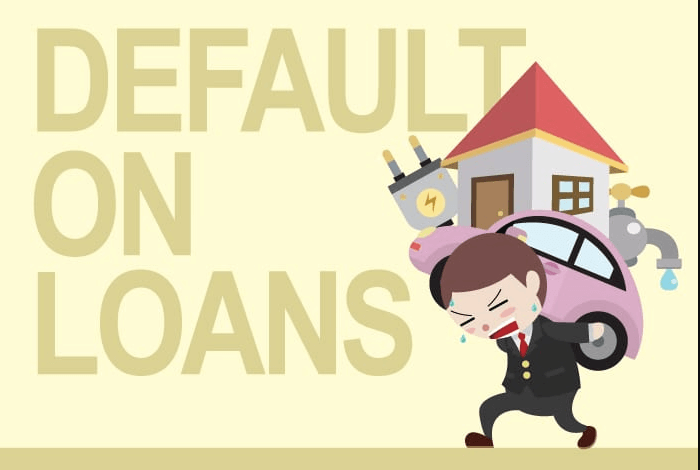Learn All About What is Defaulting on a Loan?

Outline:
- Introduction
- Understanding Loan Default
- Causes of Loan Default
- Financial Difficulties
- Unemployment
- Poor Financial Management
- Consequences of Defaulting on a Loan
- Damage to Credit Score
- Legal Actions by Lenders
- Asset Seizure
- Collection Calls and Harassment
- Preventing Loan Default
- Creating a Budget
- Building an Emergency Fund
- Communicating with Lenders
- Conclusion
- FAQs
Article:
When it comes to borrowing money, it’s essential to understand the responsibilities that come with it. One such responsibility is ensuring timely repayment of the loan. However, there are instances when borrowers struggle to meet their repayment obligations, leading to a situation called loan default. In this article, we will delve into what exactly what is defaulting on a loan means, its causes, consequences, and preventive measures.
Understanding Loan Default
Loan default occurs when a borrower fails to make scheduled payments as agreed upon in the loan agreement. It is a breach of contract between the borrower and the lender, where the borrower is unable to fulfill their financial obligations. Defaulting on a loan can apply to various types of loans, such as personal loans, mortgages, auto loans, or student loans.
Causes of what is defaulting on a loan
Several factors can contribute to a person defaulting on a loan. Let’s explore some common causes:
Financial Difficulties
Financial hardships, such as unexpected medical expenses, job loss, or a significant reduction in income, can make it challenging for borrowers to meet their loan repayment obligations. These unforeseen circumstances can disrupt their financial stability and lead to default.
Unemployment
Losing a job can significantly impact an individual’s ability to make loan payments. Without a steady source of income, borrowers may find it difficult to meet their financial commitments, resulting in loan default.
Poor Financial Management
Mismanagement of finances, including overspending, accumulating excessive debt, or failing to create a budget, can lead to financial instability. This lack of financial discipline can increase the likelihood of defaulting on loans.
Consequences of Defaulting on a Loan
Defaulting on a loan can have severe consequences that can impact a borrower’s financial well-being. Some of the common consequences include:
Damage to Credit Score
When borrowers default on a loan, it negatively affects their credit score. A lower credit score makes it challenging to secure future loans and may lead to higher interest rates or denial of credit applications.
Legal Actions by Lenders
Lenders have the right to take legal action against borrowers who default on their loans. This can involve filing a lawsuit to recover the outstanding debt or obtaining a court judgment to garnish wages or seize assets.
Asset Seizure
Depending on the type of loan, lenders may have the right to repossess or seize the assets that were used as collateral. For example, in the case of an auto loan, the lender may repossess the vehicle if the borrower defaults on payments.
Collection Calls and Harassment
When borrowers default on a loan, they may experience frequent collection calls from the lender or collection agencies. These calls can be stressful and intrusive, causing emotional distress to the borrower.
Preventing Loan Default
Taking proactive measures can help prevent loan default and its associated consequences.
Creating a Budget
Developing a comprehensive budget helps borrowers manage their finances effectively. By tracking income and expenses, individuals can allocate funds for loan payments and ensure they stay on track.
Building an Emergency Fund
Having an emergency fund provides a financial safety net during unexpected situations. By setting aside a portion of their income regularly, borrowers can build a fund that can be utilized to cover expenses during times of financial hardship.
Communicating with Lenders
If borrowers anticipate difficulty in making loan payments, it is crucial to communicate with the lender promptly. Lenders may be willing to offer temporary payment arrangements or modify the loan terms to accommodate the borrower’s financial situation. Read more…
Conclusion
Defaulting on a loan can have significant ramifications for borrowers. It can lead to damaged credit scores, legal actions, asset seizure, and constant collection calls. It is crucial for borrowers to manage their finances responsibly, create a budget, and communicate with lenders to prevent loan default. By taking proactive steps, individuals can protect their financial well-being and maintain a healthy credit history.
FAQs
1. What happens if I default on a loan? If you default on a loan, it can result in a damaged credit score, legal actions by lenders, asset seizure, and collection calls.
2. Can loan default be removed from my credit report? Loan defaults typically stay on your credit report for several years. However, you can work towards rebuilding your credit by making timely payments and demonstrating responsible financial behavior.
3. How can I prevent loan default? To prevent loan default, it is essential to create a budget, build an emergency fund, and communicate with lenders if you anticipate difficulty in making payments.
4. Will loan default affect my ability to get future loans? Yes, loan defaults can make it challenging to obtain future loans. Lenders may view you as a higher-risk borrower, leading to higher interest rates or denial of credit applications.
5. Can I negotiate with lenders if I am struggling to make loan payments? Yes, it is advisable to communicate with your lenders if you are facing financial difficulties. They may be willing to work out a temporary payment arrangement or modify the loan terms to assist you.
